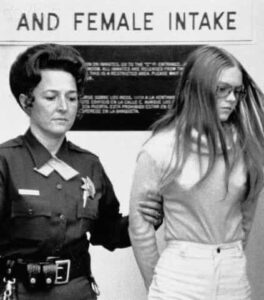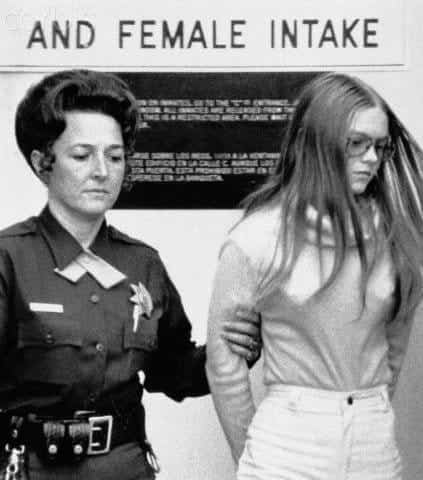Brenda Ann Spencer: The Troubled Teen Who Shocked the World with a School Shooting

On a seemingly ordinary Monday morning on January 29, 1979, Brenda Ann Spencer, a 16-year-old girl from San Diego, California, made headlines around the world for a chilling and senseless act of violence.
Armed with a .22 caliber rifle, Brenda opened fire on Cleveland Elementary School across the street from her home, forever altering the lives of those in her community and setting a grim precedent in the history of school shootings. Her haunting response when asked why she did it—”I don’t like Mondays”—became a notorious symbol of the dark, twisted motivations behind her crime.
The Day That Changed Everything
On that fateful day, Brenda positioned herself at the window of her house, taking aim at the children and adults gathered at the school. The attack was sudden and unprovoked. Spencer fired 30 rounds into the schoolyard, killing the principal, Burton Wragg, and the school’s custodian, Mike Suchar, who were trying to help the wounded children. Eight children and a police officer were also injured in the attack. The shooting lasted about 20 minutes before Brenda barricaded herself in her home, leading to a tense standoff with the police.
During the standoff, Brenda gave a phone interview to a reporter where she infamously stated, “I don’t like Mondays. This livens up the day.” The callousness of her response shocked the nation and turned her into a symbol of unexplainable youth violence. She eventually surrendered after several hours and was taken into custody.
A Troubled Background
Brenda’s life leading up to the shooting was marked by turmoil and neglect. She lived in poverty with her father in a home filled with tension and dysfunction. Brenda was known for her erratic behavior, depression, and hatred toward school, often expressing disturbing thoughts. Despite these warning signs, when she asked her father for a gun for Christmas, he gave her a semi-automatic rifle, the very weapon she used in the attack. This decision has since been widely criticized, raising questions about the role of parental responsibility and gun access in youth violence.
Mental health evaluations conducted after her arrest revealed that Brenda had a history of depression, a possible brain injury, and a dysfunctional relationship with her father, who was reported to be abusive. However, these factors, though tragic, do not excuse her actions. The complexity of Brenda’s psychological state added layers of confusion to her motivations, making it difficult for the public to reconcile her youth with the brutal nature of her crime.

The Aftermath and Legal Consequences
Brenda was charged as an adult and pleaded guilty to two counts of murder and assault with a deadly weapon. She was sentenced to 25 years to life in prison, where she remains today. Over the years, she has applied for parole multiple times, expressing regret and attributing her actions to mental illness and abuse, but each request has been denied. The parole boards have consistently found that she remains a danger to society, and her notorious statement about not liking Mondays continues to overshadow any pleas for release.
A Lasting Legacy
Brenda Ann Spencer’s attack on Cleveland Elementary School was one of the first high-profile school shootings in the United States, predating many of the more recent and tragic incidents that have plagued American schools. Her actions highlighted the urgent need for discussions on mental health, gun control, and the warning signs of violent behavior in youths.
The phrase “I don’t like Mondays” became a chilling cultural reference, even inspiring the Boomtown Rats’ song of the same name, which captured the senselessness of Brenda’s crime. Her story serves as a grim reminder of the potential consequences of untreated mental illness, easy access to firearms, and the impact of a troubled upbringing.
Brenda Ann Spencer’s crime shocked the world not just because of its brutality, but because it seemed to defy logic and reason. A teenager, barely old enough to drive, altered the lives of countless families in an instant. Her infamous words, “I don’t like Mondays,” have echoed through decades as a stark reminder of how deeply troubled individuals can impact society. The legacy of her actions continues to influence conversations about school safety, mental health, and the complexities of youth violence, reminding us that behind every headline is a deeper, often darker, story waiting to be understood.

